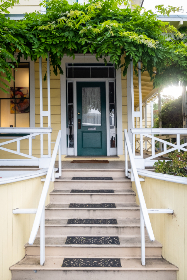Why Modular Prefabricated Houses Are Transforming the Housing Market
Modular prefabricated houses offer innovative solutions for the modern housing crisis. Their quick assembly, cost-effectiveness, and environmental benefits are capturing attention worldwide. These homes not only provide convenience but also promise sustainability and affordability. Discover the potential of these structures reshaping our living environments and how they're pushing traditional construction boundaries.
The Rise of Modular Prefabricated Houses
The housing market has faced various challenges over the years, including rising costs and increasing demand. Modular prefabricated houses are emerging as a revolutionary solution to these issues. By utilizing modern technology, these homes are manufactured in sections and transported to the site for quick assembly. This approach drastically reduces construction time and labor costs, making housing more accessible to a broader audience. Moreover, modular prefabricated houses promote environmentally friendly practices by reducing waste typically associated with traditional construction methods. As society leans towards sustainability, these innovative homes stand at the forefront of architectural evolution, proving that convenience does not have to come at the expense of the planet.
Cost-Effectiveness and Affordability
One of the primary reasons modular prefabricated houses are gaining traction is their cost-effectiveness. Traditional home construction often involves unexpected expenditures and prolonged timelines. In contrast, using a prefabricated approach allows for better budget management and planning. Builders can predict costs with greater accuracy, as many components are pre-made in controlled environments. Additionally, the standardized process saves on labor without compromising quality. This affordability makes modular prefabricated houses an attractive option for first-time homebuyers and those seeking to downsize. The financial benefits offered by these structures are paving the way for a new era in homeownership.
Customization and Design Flexibility
Contrary to a common misconception, modular prefabricated houses can be highly customizable and architecturally diverse. Homeowners can work closely with designers and manufacturers to create personalized spaces that meet their specific needs. This flexibility allows for various design styles, sizes, and layouts ensuring that aesthetics are not sacrificed for practicality. Furthermore, modular homes can also be expanded or modified over time, providing a sustainable long-term solution for families as their needs change. As buyers increasingly seek individuality in their homes, modular prefabricated houses provide an appealing avenue for creativity and personalization in construction.
Impact on Urban Development
The influence of modular prefabricated houses extends beyond individual homeowners; it plays a significant role in urban development as well. Cities grappling with population growth and housing shortages can utilize these homes to address the crisis rapidly. The speed of construction means that municipalities can provide housing for residents in need without the lengthy permitting and construction periods associated with traditional building methods. Moreover, these houses can be strategically placed in infill areas, enhancing community density while minimizing urban sprawl. In this manner, modular prefabricated houses contribute to more sustainable urban environments while accommodating growing populations.
Sustainability and Environmental Benefits
In today’s world, sustainability is paramount. Modular prefabricated houses often feature energy-efficient designs, utilizing eco-friendly materials that contribute to lower carbon footprints. The construction process itself is designed to minimize waste, using smart technologies to ensure optimal resource usage. Additionally, many modular homes incorporate renewable energy solutions, such as solar panels and green roofs, which further support environmental consciousness. As awareness of climate change escalates, it’s crucial for the housing industry to adopt sustainable practices, and modular prefabricated houses offer promising pathways for progress.
Challenges and Future Directions
Though modular prefabricated houses present numerous advantages, they also face challenges that need addressing. Perceptions surrounding quality and long-term durability often hinder wider acceptance. Educating consumers about the robust nature of these homes is essential for their proliferation. Additionally, regulatory hurdles can complicate the approval process for modular construction, necessitating industry advocacy for policy reforms. As technology advances, the potential for modular homes will continue to grow, paving the way for a future where modular prefabricated houses become a mainstream housing solution. The ongoing dialogue about their benefits and potential must be sustained to ensure a successful transition for future generations.
